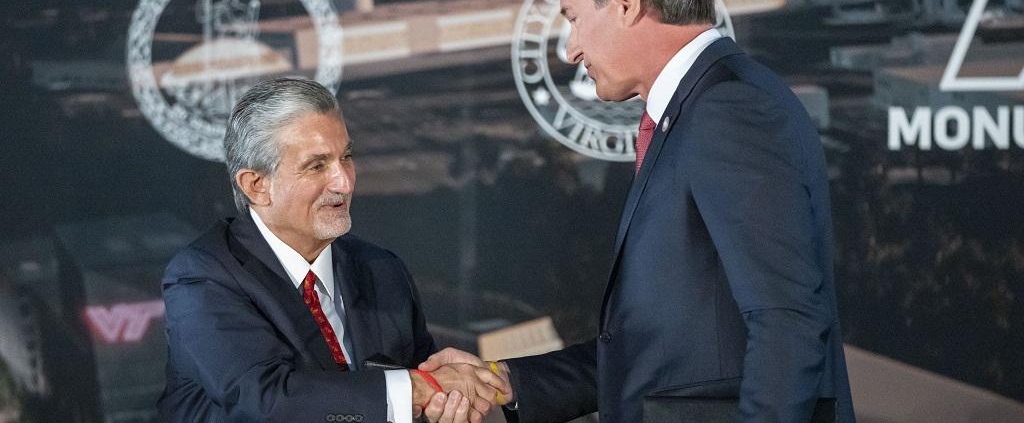Monumental Moves
Here’s What You Need To Know
Washington was shaken in mid-December by billionaire Ted Leonis’ announcement that his Monumental Sports will move two major sports franchises – the Washington Wizards and the Capitals – to a new $2 billion taxpayer-backed arena and entertainment complex in northern Virginia. The announcement came amidst rampant crime and waning office occupancy dampening the allure of the teams’ current home in downtown DC, an all too familiar concern across the country.
Facing higher crime, lower foot traffic from office workers, and progressive policies increasing labor and other costs of doing business, major retailers and other businesses are increasingly voting with their feet when it comes to urban investments. While corporations voting with their feet is not new, as our CEO noted in a recent Forbes column, the decision is more fraught for companies when today’s “political climate is fraught with chaos, polarization and unprecedented geopolitical uncertainties” even as “the ease of digital activism empowers stakeholders to voice their concerns and apply pressure more swiftly than ever before.”
In this new reality of the stakeholder economy, companies must consider the extent to which should they just pull up stakes for a better environment versus staying and fighting to improve the one they’re in. What do companies owe communities versus their shareholders and employees, and if the answer is just to leave bad business environments, how long until there’s no place left to go?
Subscribe to Receive Insights
"*" indicates required fields
These are the questions facing public affairs professionals as we enter 2024, where many of these issues – crime, racial justice, worker treatment, and the economic future of urban cores – could enter the campaign debate. Here’s what you need to know to navigate these pressures effectively.
How Downtown Booms Went Bust
In the two decades leading up to the pandemic, downtowns boomed as young professionals were attracted by the proximity to numerous amenities like entertainment venues, restaurants, bars, and gyms, which allowed them to live, work, and play within a few blocks. In fact, this migration led to a population increase in nearly 80% of America’s major downtown districts in the 20 years before Covid hit, causing a widespread urban revival.
Then the Covid-19 pandemic changed downtown realities, shifting workers from office to home and emboldening progressive efforts to reshape relationships between employers and employees. These efforts dramatically increased minimum wages, added burdensome rules regarding employment practices, and made it more difficult to start and run a business in many cities even as Covid cleared out offices and drove the rise in remote and hybrid work, emptying many downtowns of office worker foot traffic critical for maintaining stores and restaurants.
At the same time, a post-George Floyd racial reckoning led to what now appears to be an overcorrection in criminal justice practices. Emptier downtowns, social unrest, and lax practices by progressive prosecutors and undermanned law enforcement have led to increased violence and emboldened organized retail crime. That’s left major retailers and other businesses finding it harder and harder to remain in urban centers as costs rise along with the danger to their property and employees.
Should Businesses Stay Or Should They Go?
It was in this context that Monumental Sports decided to move to northern Virginia, and the company is far from alone. Across the country, numerous retailers and other businesses are closing stores or shifting headquarters due to worsening business climates.
While these moves might be the correct immediate business decision, they may come with longer-term costs. Just as some Wizards and Capitals fans feel betrayed, so too do consumers, community stakeholders, and others who are left behind when retailers close stores and businesses leave for friendlier climes. They and the elected officials who represent them could have long memories, hindering potential returns or re-openings.
It also remains to be seen if voters recognize elected officials’ role in these business exits if companies do not speak out. Indeed, while political engagement can be complicated for businesses, if they do not speak out about the impact of policymakers’ decisions and actions, who will? And if no one does, how long will it take for urban centers to return as hubs of economic opportunity?
The Right Playbook For Stakeholder Engagement
Companies cannot afford to wait for the economic, social, and political debates regarding urban centers to play out. They should shape them with active engagement of both policymakers and stakeholders to ensure the policies and practices benefit businesses and the communities in which they operate. Successful engagement requires getting smart first by:
- Thoroughly understanding the political and reputational risks and opportunities the business faces within or across jurisdictions, and what external factors like policy changes, societal trends, and geopolitical developments may be driving or influencing those risks and opportunities;
- Comprehensively mapping the companies’ internal and external stakeholders, analyzing their interests, intentions, and influence levels to deeply understand the individuals and groups with a vested interest in the company’s activities, from customers to advocacy groups;
- Connecting these external factors with the company’s core values, purpose, and mission, because companies are most effective at stakeholder engagement when they connect their principles with stakeholder and societal interests and communicate them transparently and consistently.
With the 2024 elections revving up, companies will face unprecedented scrutiny from policymakers and stakeholders. Companies who leverage the right insights will be able to not just anticipate but shape the debates that impact their interests in urban centers and beyond. Here at Delve, think of us as your compass, helping you build the information advantage you need to protect your interests and advance your business and policy objectives.



